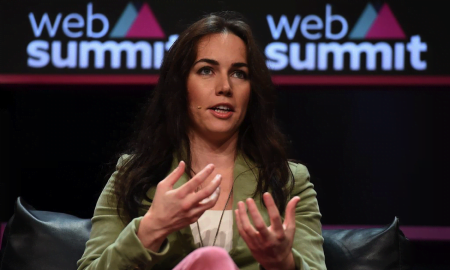





Your job ensures the lights stay on, there’s food on the table, and the rainy-day pot is full. Nevertheless, your work is one-sixth of your existence. It’s not your life, so free yourself from this unhealthy pattern and reach a sustainable, rewarding work-life balance. Work-life balance refers to the harmonious relationship between work and personal life. The COVID-19 pandemic opened the discussion of the importance of reconciliation between work and family life; when suffering from imbalances, you’re likely to miss milestones, your state of health deteriorates considerably, and you eventually become unhappy.
Work is just one aspect of your life that must be considered alongside other vital concerns, such as your well-being. Don’t fall into the trap of believing you can be productive all the time. It’s hard, if not impossible, to achieve. We’ve compiled some tips for creating a better work-life balance, so if you don’t know where to start, incorporate these suggestions in the office and at home.
Is There a Perfect Work-Life Balance? No
There’s no such thing as a perfect work-life balance, so don’t have high expectations of what your life should look like. It’s not possible to control every aspect of your day to day. What matters is that you achieve a realistic balance; otherwise, you’re setting yourself up for disappointment. Striving for perfection can provide drive and encourage you to do your best, but it can also create disappointment, add unnecessary pressure, and leave you exhausted. Therefore, reduce the risk of burnout and ignore unrealistic portrayals of work-life balance.
If you’re like everyone else, you want to have everything figured out, so you put pressure on yourself. You want to be in control, even if you can’t do that with everything and try to keep the balance. Society often paints the picture of the ideal person who seamlessly navigates their career, family life, and personal interests without breaking a sweat. The problem is that aiming for perfection leads to unrealistic expectations, so change your beliefs and embrace the beauty of compromise.
Find A Job That You Love
A job that you’re passionate about will provide you with a more enjoyable work environment. If you hate what you do, you won’t be happy. This kind of dissatisfaction can have a ripple effect on the rest of your life, so it’s absolutely fine to quit a job you hate; just make sure you don’t end up in a similar one. There are many reasons why you might want to join a company, the most important one being taking a job that reflects your values. An ever-increasing number of companies are becoming environmentally aware. Some make a difference in their own backyards by giving employees seeded paper to grow habitats for important pollinators.
To find a job that you love, discover what motivates you and what makes you feel fulfilled. The last thing you want is to work in a toxic environment, for a toxic person, or do a job that you loathe. If you focus your job searches on how much money you can make, you won’t find your ideal career option. Make a list of things you’d like to do, and don’t worry about meeting financial obligations. If you like connecting with people and creating meaningful relationships, you should work in marketing. Companies like Greengiving (https://www.greengiving.eu/) help organizations promote their brands in a sustainable way, contributing to a better world. It’s just an example.
Prioritize Your Physical, Emotional, And Mental Health
In case you didn’t already know, well-being relies on physical, emotional, and mental health. If one area is neglected, it can leave the rest in danger. To maintain a healthy lifestyle, limit unhealthy foods, drink plenty of water, reduce sitting and screen time, and get enough sleep. Emotional and mental health have psychological differences: emotional health is related to the ability to manage your moods and feelings, while mental health involves your overall well-being. They do intersect at times. Manage stress, increase your energy, focus on positivity, and practice gratitude.
Communicate Boundaries
It’s essential to set boundaries to have a good work-life balance and be more satisfied with your life. When you leave the office, don’t think about upcoming projects or answering emails. It’s a good idea to have a separate computer and phone for work to stay organized and focused by keeping work and personal files separate. Suppose that isn’t possible, at least separate browsers, emails, and filters for work and personal platforms. Once you’ve identified your priorities, communicate them to your co-workers and clients. Let people know when you intend to work and when you’re not available.
If you automatically say yes to extra work, there’s no better time than now to start saying no. Just imagine what you can do with all the free time. If you’ve been raised to be a good person, you struggle to say no out of fear of rejection or because you’re afraid of what the other person’s response might be. Reclaim your time and your well-being by saying no more often. Equally important is to take advantage of breaks that are offered to you. It will restore your focus and attention, especially for long-term goals.
Find Something Outside of Work to Engage In
You devote a lot of your time and energy to your career, so it’s easy to get caught up in the profession too much. If you’ve reached a point where you’re struggling to find fulfillment, you need something outside of work to engage in. To be happy, develop at least four hobbies. You have interests, whether reading, photography, gardening, or cooking. Any of the aforementioned activities can add value to your life, giving you something to look forward to. Not only will it be easier to disconnect from work messages, but it will also provide an opportunity to connect with people outside your professional circle.
Concluding Thoughts
Finding work-life balance doesn’t always come naturally, but try to make an effort. Stop obsessing over time… it’s not the real problem. Work-life balance is about feeling at ease with the decisions you’re making.









